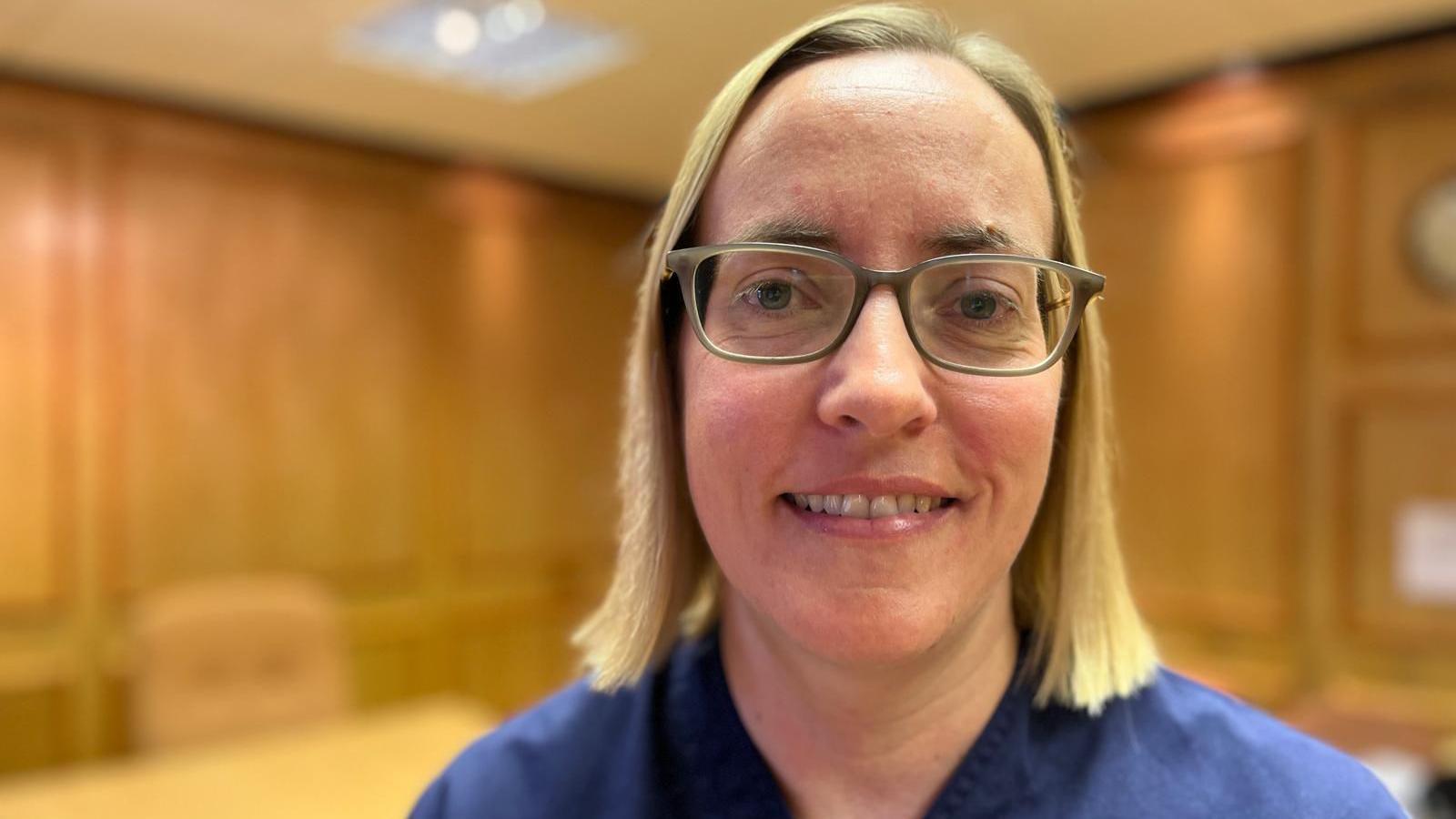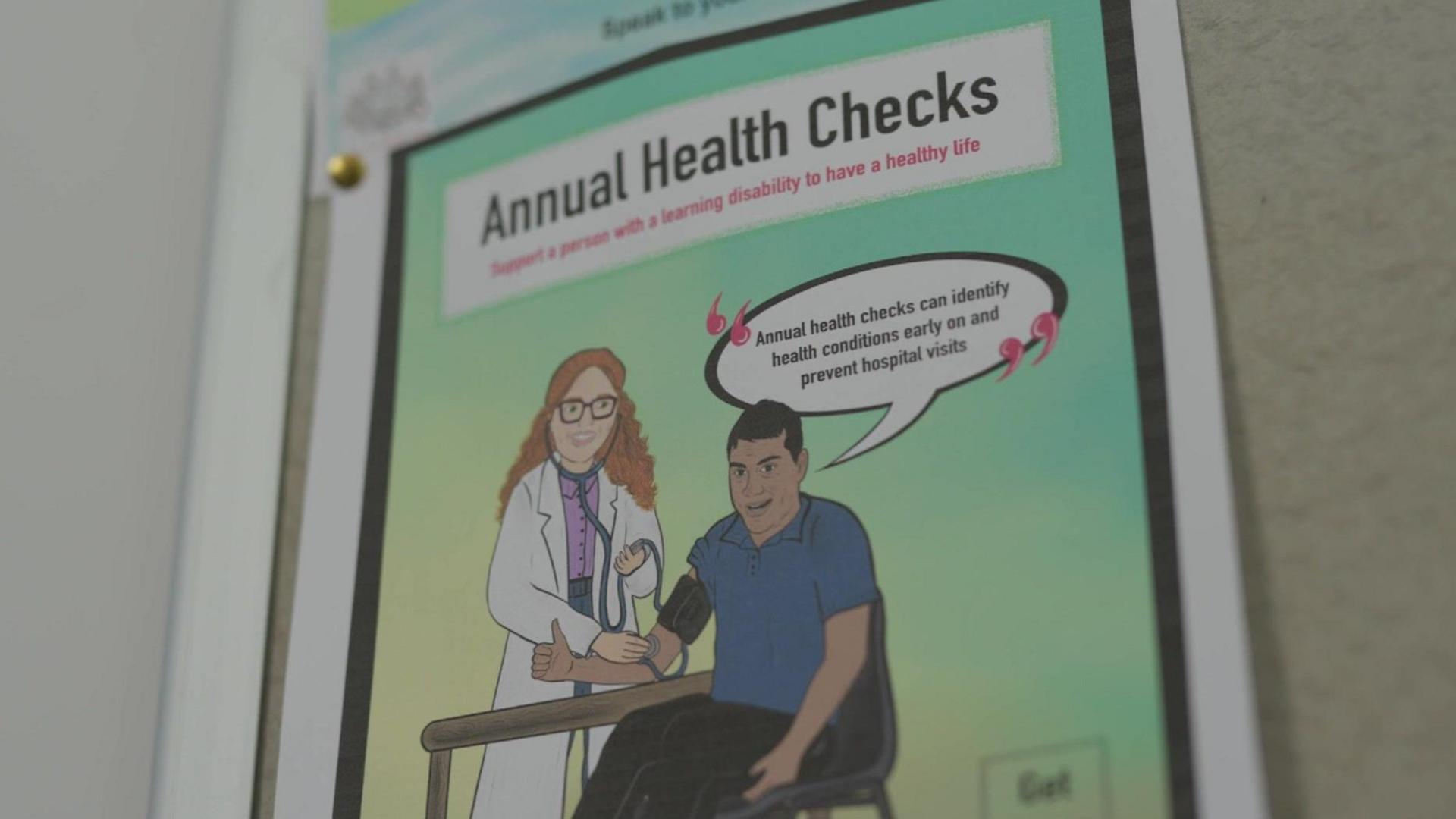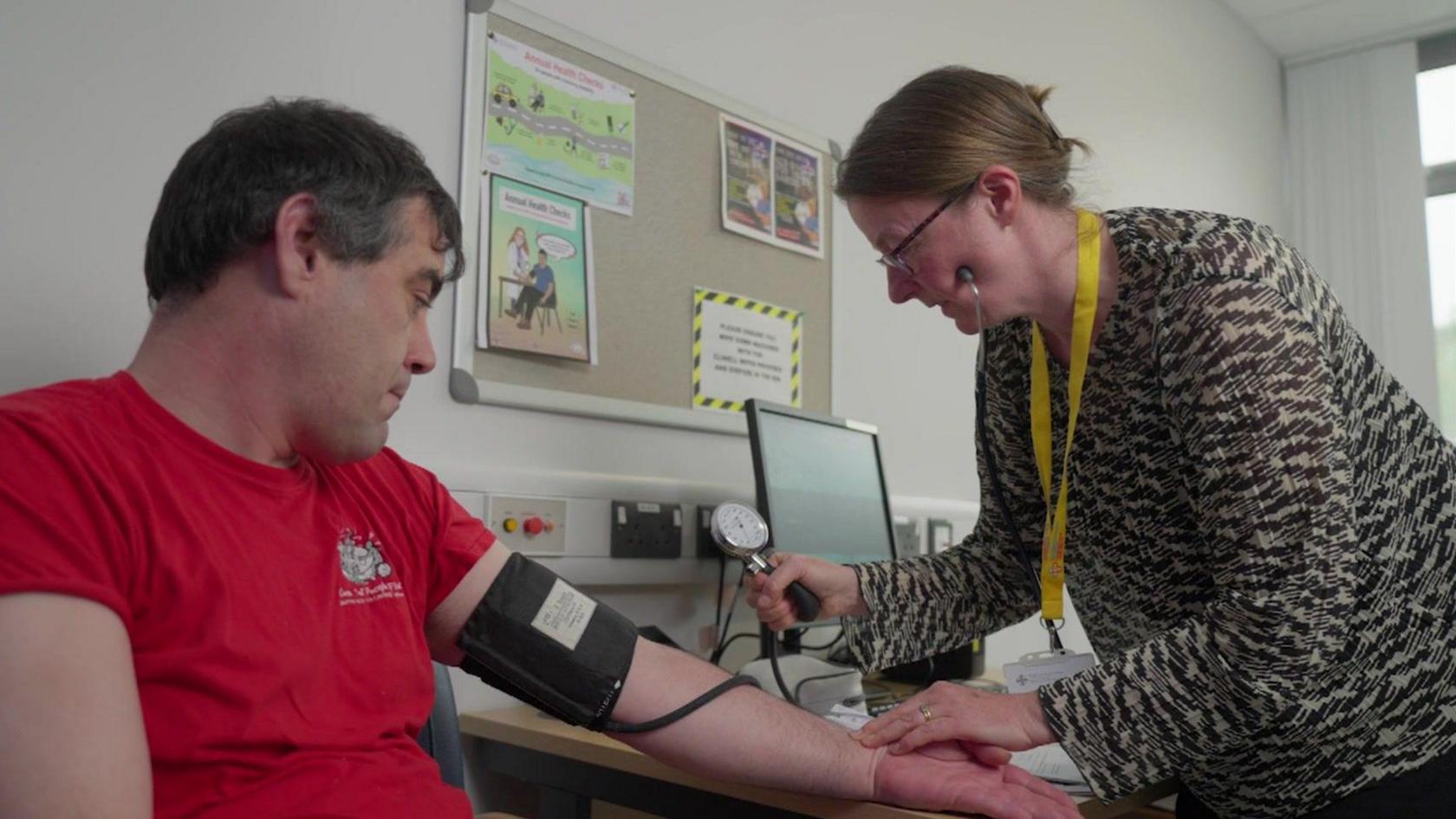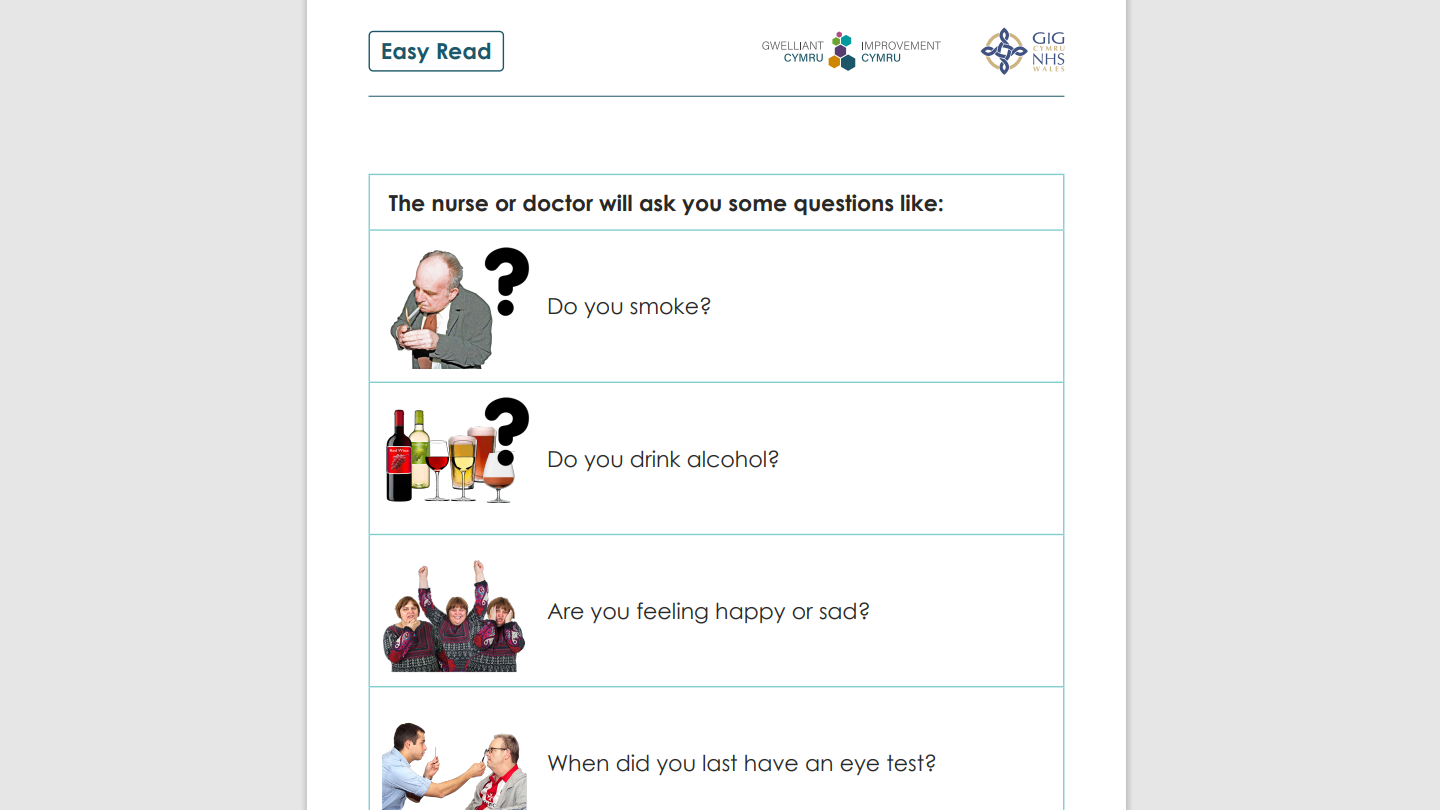Annual GP visit could cut learning disability deaths

Tom Watling is a health champion for those with learning disabilities in the Rhondda Cynon Taf area.
- Published
Tom Watling is on a mission to improve the health of people with learning disabilities – people like him.
High on his list is reducing doctors' jargon - "they do use big words," he said with frustration.
But he added greater availability of a simple annual health check could go a long way to reducing health inequalities and premature deaths.
The Welsh government said pilots are underway to shape the delivery of this important service.
Disabled children denied education right - report
- Published16 July 2024
Disabled woman's 1,000 calls for Ed Sheeran ticket
- Published12 February 2023
"I feel angry because there’s a lot of people passed away from not having a health check – that's very important to them, to see if they are OK," he said.
The checks have been available in Wales for a number of years, but not everywhere, and take up fell after the pandemic.
"I would like to see it rolled out in every surgery in the future," added the 39-year-old from Pontypridd, Rhondda Cynon Taf, who works with Cwm Taf People First, a charity run by and for those with learning disabilities.
During appointments a doctor will "take your blood pressure, talk about your weight, things like that. Basically like a car MOT", he explained.
So as a health champion, working with a number of local organisations, what's his experience of health care?
"Some (staff) are good in a hospital, some need a bit more training, to treat disabled people more equally," he said.
"But some doctors they do so many big, big words. Because I can’t understand them half the time – they should break the words gradually."

Learning disability nurse Helen Thompson says annual health checks could do a lot to reduce the risks of premature death for patients with learning disabilities.
Helen Thompson is one of the learning disability nurses in the Cwm Taf Morgannwg health board area, who aims to increase the availability of annual health checks.
"People with learning disabilities on average are dying a lot younger than the general population – somewhere between 19 and 23 years younger – from preventable causes of death," she said.
"An annual health check has been identified as a way to potentially find some of those illnesses or diseases that may contribute to an early death, and try to nip them in the bud."
While targets have previously been set in England for 75% of eligible patients to take up the health checks, Ms Thompson said it is currently a lot lower than that in some parts of Wales.
In the year after the pandemic, the number of people having the checks more than halved and the Welsh government say it has given health boards more than £1m over three years to improve the quality and take-up of the annual appointments.
"We are currently running two pilot projects that will shape the future delivery of this important service, and exploring the use of an improved digital system to maximise health benefits and more efficiently evaluate outcomes," a spokesperson said.

Pilots are underway to see how take-up of annual health checks can be improved
Conditions such as constipation are more common among those with learning disabilities, but these people are also at higher risk of dying if it is left untreated.
Last year, a prevention of future deaths report was issued by a coroner in Wales after a 24-year-old patient with a learning disability died from complications brought about by constipation.
Research has found that health checks could particularly improve life expectancy for those with autism or Down's syndrome.
"Many patients with a learning disability are at increased risk of chronic health problems – sometimes by virtue of their underlying condition, but also through medication they take and it can be easy for these things not to be checked for some time," said Dr Emma Hall, a GP in Pontypridd's Ashgrove Surgery.

Dr Emma Hall is shown giving Tom Watling a check up, as part of a promotional film made by Clear The Fog for the regional partnership board
Her own surgery offers annual health checks, but she said availability varies across Wales, which is why a pilot has been looking at ways to overcome some of the barriers to holding the hour-long appointments.
"There are challenges for GP practices in offering these checks because they do take a lot of time, so staffing issues and just managing demand can be a challenge, particularly for smaller practices," she said.
But Dr Hall added that there can also be huge benefits, both for the patients and the wider NHS.
"If you looked at the cardio vascular burden of health problems, things like angina, heart attack, strokes, we know that because certain medication and conditions associated with learning disabilities can increase the risk of that, by intervening early one could say that you save money on admissions to hospital," she said.
"For patients with these conditions, you can prevent years of poor health from the consequences of strokes and heart attacks and improve life span. There are likely to be significant cost savings I would have thought.

An example of the "easy read" invitation letter for patients with learning disabilities to attend an annual health check
She stressed its not enough to simply offer annual health checks – making them accessible is also crucial, be that through simple language, or the timings of appointments.
"Many of my patients find it quite distressing to sit and wait in a busy waiting room, so we might bring patients in at the end when it’s a bit quieter or at the beginning of the day when you’re not running late and you can start with them straight away," she added.
Patients can be offered "easy read" documents during appointments, where simplified language and images are used.
Typically "communication passports" are also available, listing information about a person's health needs and the best ways for NHS staff to communicate with them.